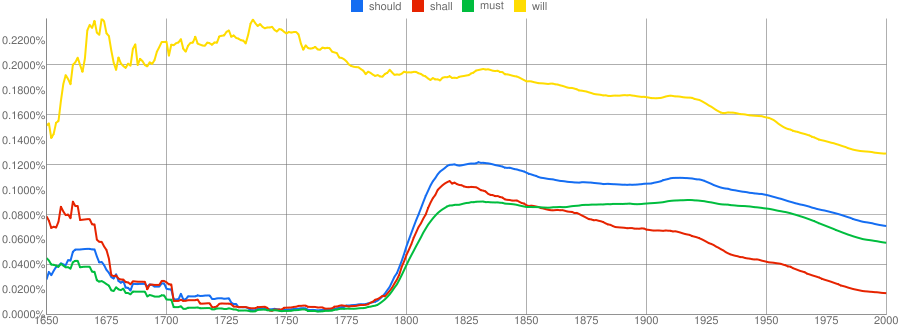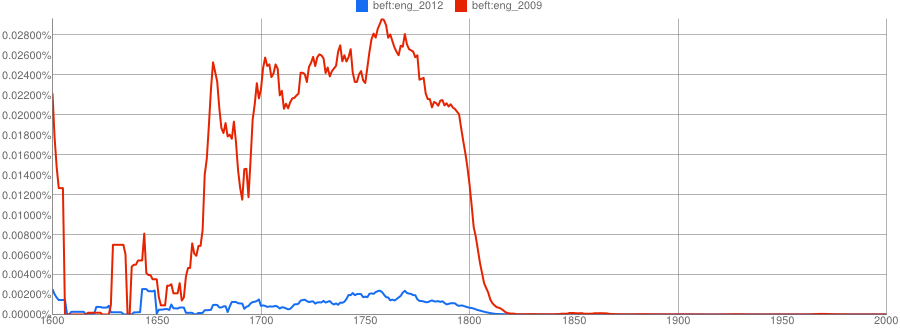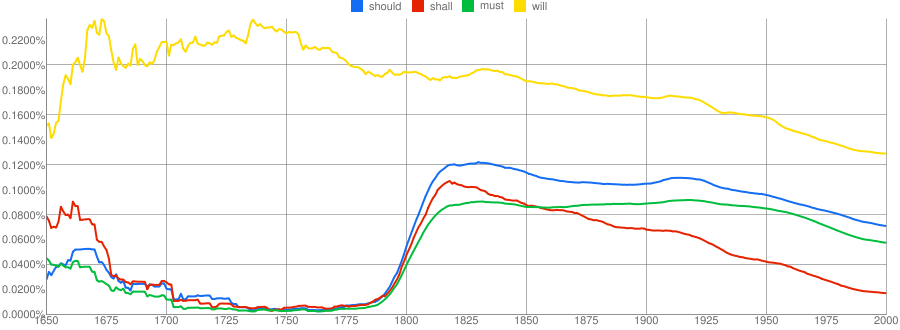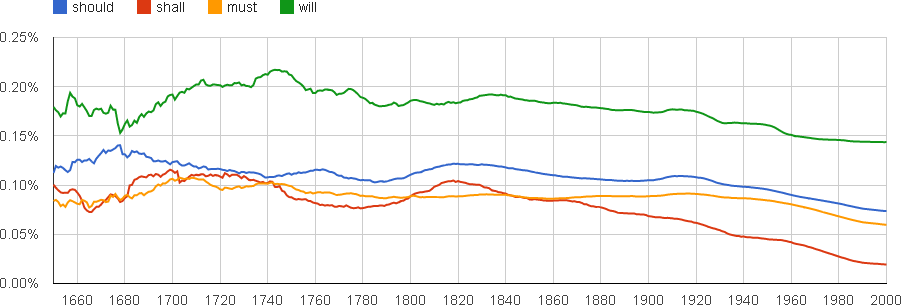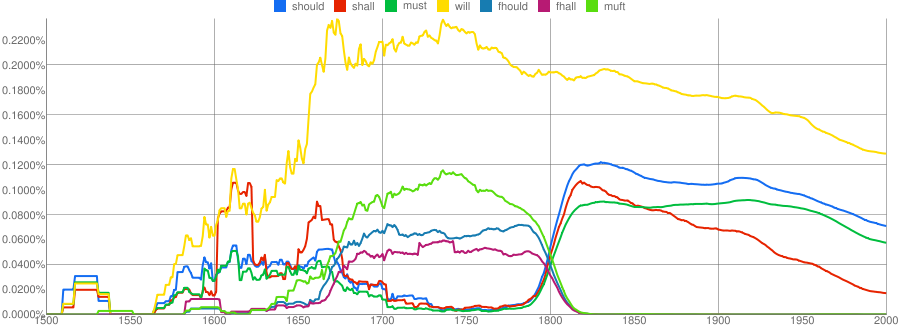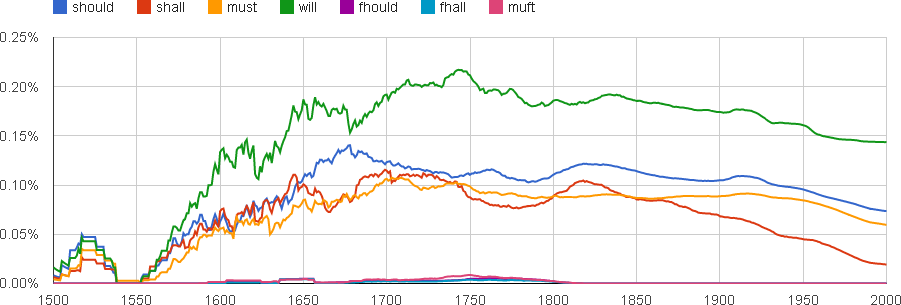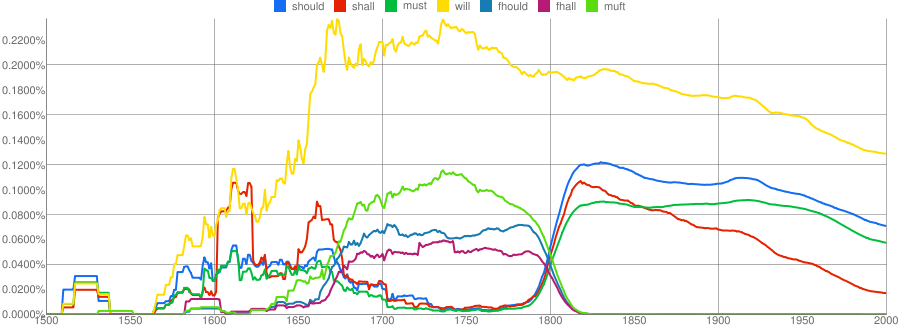Though I know the question has been answered by showing changes in the Google OCR, I thought it would be helpful to see actual references to the word shall as found by human researchers in 18th century writing, instead of relying on the OCR compilation.
Before seeing the answer to this question I started researching instances of shall as given in the Oxford English Dictionary Online. In the samples I cite, I have left out the definitions to which each pertains because there are many long, precise variants, and because the querent did not ask for definitions.
Below are a few samples of the quotations from the 18th century that I found, but this is by no means an exhaustive survey of the entire OED entry for shall. I found these examples under shall as a verb. I stopped looking after entry #8 subsection b. because there were far too many. These only reflect usage in the 18th century under the first few sections covering the use of shall "followed by an infinitive (without to)." These OED examples include their date and source exactly as presented, but without the links provided in the OED.
1744 in Atkyns Chanc. Cases (1782) III. 166 The words shall and may in general acts of parliament, or in private constitutions, are to be construed imperatively, they must remove them.
1781 R. B. Sheridan Trip to Scarborough v. ii. (ad fin.), Well, 'fore George, you shan't say I do things by halves.
1719 in T. D'Urfey Wit & Mirth V. 113 Shall you and I Lady, Among the Grass lye down
1719 in T. D'Urfey Wit & Mirth V. 113 Shall you and I Lady, Among the Grass lye down a.
1780 R. B. Sheridan School for Scandal ii. iii. 24 What!..shall I
forget..when I was at his years myself.
1741 S. Richardson Pamela III. xvii. 89 A pretty thing, truly!
Here, I a poor helpless Girl, raised from Poverty and Distress,..shall
put on Lady-Airs to a Gentlewoman born.
1737 Pope Epist. of Horace i. i. 97 And say, to which shall our
applause belong, This new Court jargon, or the good old song?
1756 M. Calderwood Lett. & Jrnls. (1884) vi. 166, I beg to
know..who I shall inform him inquired so kindly after him.
1780 R. B. Sheridan School for Scandal iii. i. 32 Let our future
contest be, who shall be most obliging.
1746 P. Francis tr. Horace in P. Francis & W. Dunkin tr. Horace
Epistles ii. i. 26 No Prince so great, so wise, Hath ever risen, or
shall ever rise.
1781 R. B. Sheridan Trip to Scarborough ii. i, So—carry him off!..
We shall have him into a fever by-and-by.
1781 Johnson in Boswell Life Johnson (1904) II. 402 You cannot
suppose that we shall rise with a diseased body.
1779 Mirror No. 25, I..shall let my wife and daughters know, that
I will be master of my own house.
Since these are only a small sample of the quotes found in the 18th century writing, the word must have been used much more often than was offered in the OED because they usually only quote significant examples. The dates of the samples span the century, and show no drop or change in frequency of use.
